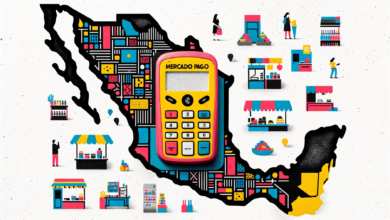Uber freezes fintech plans in Mexico, while competitors inDrive and DiDi double down on financial services •

- Despite obtaining an official license to offer financial products, Uber has decided to put its fintech initiative in Mexico on hold, at least momentarily.
- Meanwhile, competitors DiDi and inDrive are expanding their services in payments, loans, and credit cards, amplifying the bet of collaborative economy platforms on digital finance.
- The strategies of these transportation platforms differ: Uber has postponed its plans, while DiDi and inDrive are refining their approaches to tap into the potential of alternative data and financial inclusion in Mexico.
Uber, DiDi, and inDrive have been developing similar strategies to expand their ecosystems, venturing into transportation, delivery, food marketplace, and now finance.
However, their financial strategies are dissimilar.
In May, Uber obtained a fintech license as an electronic payment funds institution (IFPE), allowing it to launch its own digital wallet with a debit card. Despite this, the company has decided to halt its initiative, at least temporarily, without providing further details on its reasons for postponing the plans.
On the other hand, inDrive launched its loan and credit card offerings for drivers in Mexico in March through alliances with companies like R2, a lending-as-a-service fintech, card issuer Galileo, and Mastercard. This approach has allowed inDrive to improve its time-to-market and generate new benefits for the platform, both in driver retention and revenue. By sharing driver data with its financial partners, inDrive enables them to evaluate, enable, and collect the loans placed.
DiDi, in turn, has expanded its loan offerings, initially available only to passengers and drivers, to all Mexicans through its independent DiDi Finanzas app. By the end of 2023, DiDi Préstamos had disbursed more than 5 million loans since its launch in 2021, while its payment service, DiDi Pay, was used in over 2 million transactions. Last year, the company launched the DiDi Card credit card, issued by Regigold, a regulated institution in Mexico.
DiDi has broadened its vision, aiming for a super-app strategy, a path also taken by Rappi, leveraging a robust promotion and marketing plan. The company seeks to be part of people’s daily lives, offering services such as transportation, food delivery, mobile top-ups, and bill payments, all within a single app.
These developments demonstrate the opportunities in the gig economy, the potential of alternative data, and the space that still exists in Mexico for financial inclusion and new business strategies, as transportation and delivery platforms venture into the realm of banks and fintechs.



